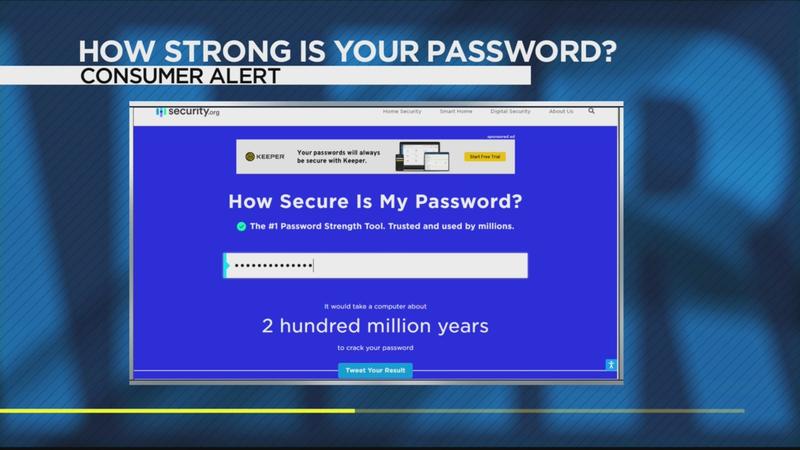Consumer Alert: All the tools you need for email and password safety
[anvplayer video=”5043125″ station=”998131″]
ROCHESTER, N.Y. (WHEC) — Do you have a job? Then you’ve likely been on LinkedIn, and that means your information has probably been compromised. But I just found a new tool that will help you test the strength of your passwords.
The site can actually tell you how long it would take a hacker’s software to figure it out. It’s Security.org.
I pride myself on the strength of my passwords, so I typed it in my password for one of my accounts, and according to the site, it would take a hacker’s software about 200 million years to figure out my password.
That’s not the case for the favorite password of my 19-year-old son. Despite my pesky protestations, he uses the same password on most websites. I typed in his password on the site. And it revealed it would take a hacker’s software only three days to figure out my son’s password. This is a great tool if you prefer to create your own passwords but you want to make sure they’re strong enough to stand against a hacker’s persistence.
If you’re on LinkedIn, you need to change your password now. As we told you last month, a hacker stole the personal information of 700 million LinkedIn users. That’s 92% of the folks on the site. Restore Privacy copied the actual post found on a popular hacker forum on the dark web.

[News10NBC]
This guy is bold. His post reads, “I have 700 million 2021 LinkedIn records.” He then asks to be paid using MM Escrow.
Restore Privacy analyzed the stolen data. According to its research, hackers stole the following from LinkedIn users:
- Email Addresses
- Full names
- Phone numbers
- Physical addresses
- Geolocation records
- LinkedIn username and profile URL
- Personal and professional experience/background
- Genders
- Other social media accounts and usernames
So, I’ve given you this information before, but it bears repeating. You need to check to see if your email address and password are already for sale on the dark web.
There are several good websites where you can enter your email address or password to find out if it has been posted on some hacker site on the dark web:
- Avast’s Hack Check
- F-Secure Identity Theft Checker
- Haveibeenpwned
- Cybernews’ Personal data leak checker and leaked password checker
If you find out your information has been compromised, don’t panic. Instead, change all your passwords. It’s a good idea to check more than one website because each may be scanning different sites on the dark web.
Creating strong unique passwords for each of your accounts is absolutely imperative. An easy way to do that is to use the website called 1password. It creates and stores passwords for you.